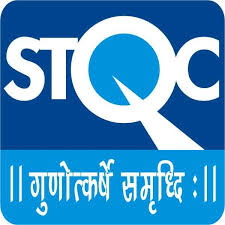Information about the Consulate as required under Section 4(1)(B) of the RTI Act, 2005
(i) The particulars of its organization, functions and duties:
The Consulate General of India is headed by Consul General and has following Sections/Wings :
(i) Chancery Wing (ii) Consular Wing (iii) Commercial Section (iv) Culture & Information Wing (v) Political Wing
A Consul supervises the functioning of each Wing.
The functions of the Consulate, inter alia, include visa, passport and consular services, community affairs, trade and investment promotion, cultural interaction, with the three provincial governments, under the jurisdiction of the Consulate, viz., Shanghai, Zhejiang & Jiangsu.
Consulate functions within the purview of business allocated to the Ministry of External Affairs under the Government of India’s Allocation of Business Rules and Transaction of Business Rules.
(ii) The powers and duties of its officers and employees:
General Administrative powers are derived from Indian Foreign Service (Pay Leave and Compensatory Allowances etc) Rules, 1961 as amended from time to time.
Financial powers of the Officers of the Consulate General of India have been detailed in the Delegated Financial Powers of the Government of India’s Representatives Abroad.
Other powers are derived from the Passport Act of India, Visa Manual, and other instructions issued by Ministry of Home Affairs.
The Officers of the Consulate function under the guidance and supervision of the Consul General.
(iii) The procedure followed in the decision making process, including channels of supervision and accountability
&
(iv) The norms set by it for the discharge of its functions:
Decisions are guided by relevant rules and are arrived at under the instructions and overall supervision of the Consul General.
(v) The rules, regulations, instructions, manuals and records, held by it or under its control or used by its employees for discharging its functions:
Indian Foreign Service (Pay Leave and Compensatory Allowances etc) Rules, 1961 and its annexure notifying decisions taken by the Government under the Rules, Delegated Financial Powers of Government of India’s Representatives abroad, The Passport Act, Visa Manual, Manuals on Office Procedures, Other Central Government Rules and manuals published by the Central Government.
(vi) A statement of the categories of documents that are held by it or under its control:
Classified documents/files relating to important issues; Unclassified documents/files including, agreements and Memoranda of Understanding; Passport, visa and consular services applications.
(vii) The particulars of any arrangement that exists for consultation with, or representation by, the members of the public in relation to the formulation of its policy or implementation thereof:
Consulate General of India functions within the norms of India’s foreign policy formulated by the Ministry of External Affairs. Policy is implemented by the Consulate under the guidance and supervision of the Consul General. The Consulate has an informal consultation mechanism with the Indian community on consular, cultural, social and other issues for promoting the welfare of the community.
(viii) A statement of the boards, councils, committees and other bodies consisting of two or more persons constituted as its part or for the purpose of its advice, and as to whether meetings of those boards, councils, committees and other bodies are open to the public, or the minutes of such meetings are accessible for public:
The Consulate works in close coordination with CII-IBF, think tanks, academicians and others in addition to the Indian Association.
(ix) A directory of its officers and employees: Contact details.
(x) The monthly remuneration received by each of its officers and employees, including the system of compensation as provided in its regulations:
Based on local sensitivity these details are not publicised.
(xi) The budget allocated to each of its agency, indicating the particulars of all plans, proposed expenditures and reports on disbursements made:
Based on local conditions and sensitivity, these details are not provided on website.
(xii) The manner of execution of subsidy programmes, including the amounts allocated and the details of beneficiaries of such programmes:
The Consulate General of India does not have any subsidy programme.
(xiii) Particulars of recipients of concessions, permits or authorizations granted by it:
N.A.
(xiv) Details in respect of the information, available to or held by it, reduced in an electronic form:
The Consulate website has the required information. Consulate also makes available to interested individuals/organizations various books, journals, handouts, CD’s and DVD’s containing information on India, its people, culture, and economic policies.
(xv) The particulars of facilities available to citizens for obtaining information, including the working hours of a library or reading room, if maintained for public use:
The Consulate is open to public from 0930 hrs to 1200 hrs for queries on Consular matters. The queries received from public through post/e-mail are replied to by the same means. The Consulate hosts a library which is open to the public. Besides, Consulate also offers its meeting hall for events held by Indian business community and Indian association.
(xvi) The names, designations and other particulars of the Public Information Officers:
Public Information officer:-
|
Designation
|
Name
|
Fax
|
E-mail
|
|
Appellate Authority
|
Dr. N. Nandakumar,
Consul General
|
(86 21) 62956892
|
cg.shanghai@mea.gov.in
|
|
Central Public Information Officer
|
Smt. Rangashree T.K.,
Head of Chancery
|
(86 21) 62758881
|
hoc.shanghai@mea.gov.in
|

